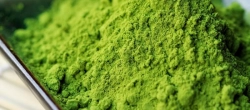Soy Milk: Taste Profile, Aroma, Benefits and Health Risks
Soy milk is a popular plant-based alternative to dairy, cherished for its smooth texture, mild flavor, and versatile culinary applications. Derived from soybeans, this creamy beverage not only caters to vegan and lactose-intolerant diets but also provides a rich source of protein and essential nutrients. This article provides a comprehensive sensory description of soy milk—including its taste, aroma, texture, and appearance—followed by an in-depth flavor analysis, diverse culinary applications, guidelines for selection and storage, nutritional insights, and key dietary considerations.
Soy milk is a plant-based beverage that is naturally vegan, gluten-free, and lactose-free. It is often enriched with calcium, vitamin D, and vitamin B12 to boost its nutritional profile. However, individuals with soy allergies should avoid it.
What does Soy Milk taste like?

Complete Sensory Description
Taste:
Soy milk offers a delicate, mildly nutty flavor with subtle earthy undertones. The initial sip reveals a gentle sweetness balanced by a faint bean-like taste, which softens into a smooth, creamy finish. The flavor is mild enough to complement both savory and sweet dishes, yet distinctive enough to be enjoyed on its own.
Aroma:
Its aroma is light and fresh, carrying hints of roasted soybeans and a slight nuttiness. This gentle fragrance is inviting and underscores the beverage's natural plant origin without being overpowering.
Texture:
Soy milk has a smooth, velvety consistency that is both creamy and refreshing. It flows easily and coats the palate, providing a satisfying mouthfeel that is similar to dairy milk but with a plant-based twist.
Appearance:
Typically, soy milk has a clean, off-white to creamy beige color that is visually appealing. Its consistency is uniform and free of any sediment when well-prepared, making it an attractive addition to beverages, cereals, or recipes.
In-Depth Flavor Analysis
-
Mild Nutty Base:
The foundational flavor of soy milk is subtly nutty, stemming from the natural taste of soybeans. This base is gentle, making it a versatile ingredient in various recipes. -
Slight Earthiness:
Beneath the initial nuttiness, a delicate earthy note emerges, adding depth to the overall flavor profile without dominating it. -
Natural Sweetness:
A light, inherent sweetness is present, which balances the bean-like notes and creates a harmonious, refreshing taste. -
Clean and Neutral Finish:
The flavor concludes with a clean finish that makes soy milk an excellent canvas for both flavor pairings and standalone enjoyment.
Culinary Applications
- Beverages:
Enjoy soy milk on its own, over ice, or steamed as part of a comforting latte. Its mild flavor pairs well with coffee or tea. - Smoothies and Shakes:
Blend soy milk with fruits and vegetables for a nutrient-rich smoothie or protein shake. - Cooking and Baking:
Use soy milk as a dairy substitute in recipes such as soups, sauces, and baked goods to add creaminess without altering the flavor profile significantly. - Cereal and Oatmeal:
Pour it over breakfast cereals or mix into oatmeal for a creamy, plant-based start to your day. - Desserts:
Incorporate soy milk into custards, ice creams, and puddings for a smooth texture and subtle flavor that enhances sweetness.
Selection and Storage
Selecting Soy Milk:
- Look for soy milk with a smooth, uniform consistency and a clean, fresh aroma.
- Opt for unsweetened or lightly sweetened varieties if you prefer a more natural taste, or choose enriched versions for added nutritional benefits.
Storage Recommendations:
- Store unopened soy milk in a cool, dark place until its expiration date.
- Once opened, keep soy milk refrigerated at temperatures between +2°C and +4°C (36°F–39°F) and use within 7–10 days for optimal flavor and quality.
- Shake well before use, as natural separation may occur.

Quick Facts
- Plant-Based Alternative:
Soy milk is an excellent option for those following vegan or lactose-free diets. - Nutrient-Dense:
Rich in protein, and often fortified with calcium, vitamin D, and vitamin B12. - Versatile Ingredient:
Suitable for a wide range of culinary applications—from beverages to baking. - Low in Calories:
Generally low in calories, making it an attractive choice for calorie-conscious individuals. - Naturally Gluten-Free:
An ideal option for those with gluten sensitivities.
Health Benefits of Soy Milk
- High-Quality Protein:
Soy milk provides all essential amino acids, making it a complete protein source. - Bone Health:
Often fortified with calcium and vitamin D, it supports strong bones and dental health. - Heart Health:
Low in saturated fat, soy milk is beneficial for maintaining a healthy heart. - Antioxidant Properties:
Contains bioactive compounds that help protect against oxidative stress. - Digestive Wellness:
Its plant-based nature and fiber content support healthy digestion.
Additional Nutritional Insights
- Balanced Macronutrients:
A harmonious blend of proteins, healthy fats, and carbohydrates provides sustained energy. - Micronutrient Boost:
Fortified soy milk offers essential vitamins and minerals that may be lacking in a typical plant-based diet. - Low Glycemic Index:
Its minimal impact on blood sugar levels makes it a suitable choice for those managing diabetes. - Phytoestrogens:
Contains isoflavones, which have been studied for their potential health benefits, including hormone balance. - Minimal Processing:
When minimally processed, soy milk retains its natural flavor and nutritional integrity.
How to Enjoy Soy Milk
- Morning Beverage:
Enjoy a chilled glass of soy milk on its own or add it to your coffee for a creamy, dairy-free alternative. - Smoothie Booster:
Blend soy milk with your favorite fruits, leafy greens, and a spoonful of nut butter for a nutritious smoothie. - Cooking Substitute:
Use soy milk in recipes as a direct substitute for dairy milk—ideal for baking, soups, and sauces. - Cereal Companion:
Pour soy milk over your cereal or oatmeal for a protein-packed, plant-based breakfast. - Dessert Ingredient:
Incorporate it into desserts like custards, ice creams, or puddings to create a smooth and rich texture.
Harm and Dietary Considerations
- Allergen Alert:
Soy milk is not suitable for individuals with soy allergies. - Potential Estrogenic Effects:
The isoflavones in soy may mimic estrogen in the body; while beneficial for many, those with hormone-sensitive conditions should consult with a healthcare provider. - Moderation is Key:
Although nutritious, soy milk should be consumed as part of a varied diet to ensure balanced nutrient intake. - Quality Variability:
Always choose fortified, high-quality brands to avoid additives and achieve optimal nutritional benefits.
Conclusion
Soy milk stands as a versatile and nutritious plant-based beverage, celebrated for its smooth texture and subtle, nutty flavor. As a dairy alternative, it seamlessly fits into various culinary contexts—from refreshing beverages and protein-rich smoothies to baked goods and savory sauces. With its impressive nutrient profile, especially when fortified, soy milk not only supports a balanced diet but also offers a delicious, sustainable option for those seeking to embrace a plant-based lifestyle.
References
- Messina, M. (2010). "Insights Regarding the Role of Soy Foods in Vegetarian Diets." Journal of Nutrition, 140(12), 2289S–2295S.
- McGee, H. (2004). On Food and Cooking: The Science and Lore of the Kitchen. New York: Scribner.
- Healthline. (2020). "Soy Milk: Benefits, Side Effects, and How to Make It."











